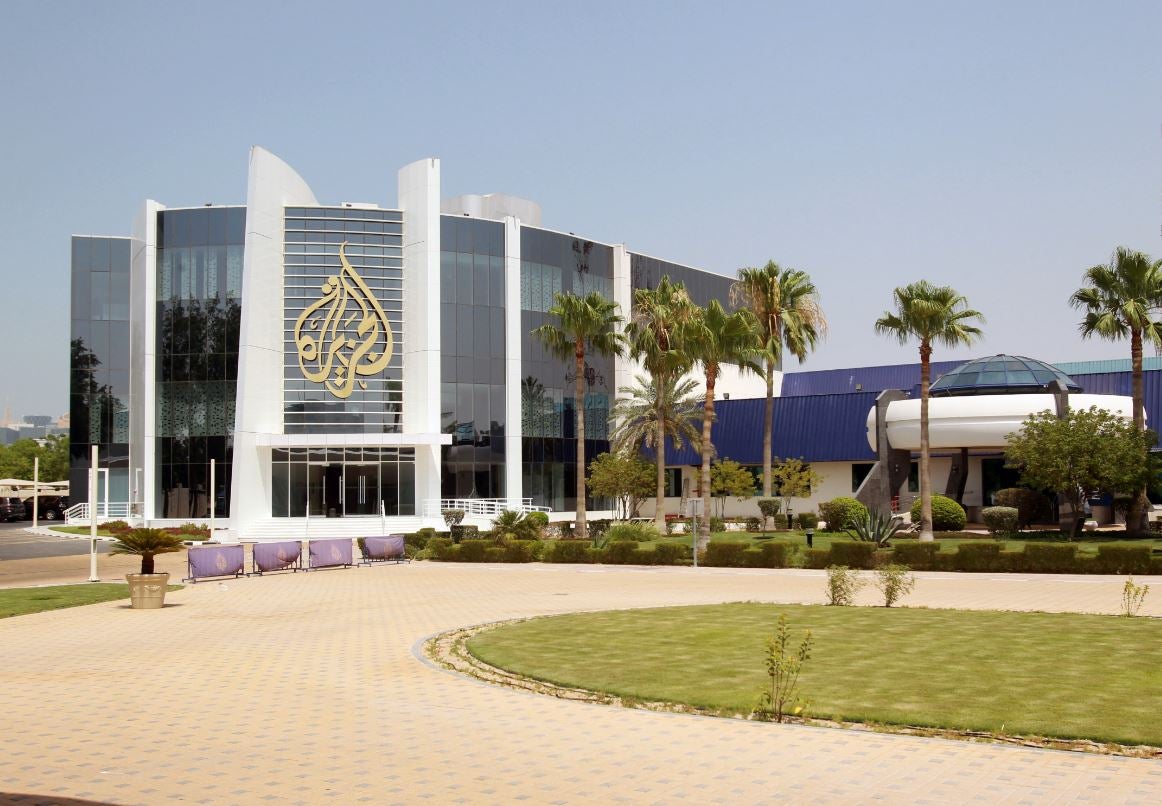
Al Jazeera’s offices around the world have been shut down, bombed and its journalists locked up. But today it faces the greatest threat to its existence in its 20-year history with the demand from neighbouring Gulf countries that it be shut down.
This is the view of Giles Trendle who is managing director of Al Jazeera English, the English-language version of the channel which employs 80 editorial staff at the Shard building in London Bridge.
The clock is ticking down on a ten-day ultimatum issued by Saudi Arabia, United Arab Emirates, Bahrain and Egypt to Qatar five days ago on 22 June. Number three on the list of demands given as the price of stopping a trade and diplomatic embargo is closing Qatar-based channel Al Jazeera and its affiliate stations.
If Qatar does not comply there are concerns the situation could escalate further.
Saudi Arabia appears to see Al Jazeera as a propaganda tool for Islamists and terrorists. Other demands to Qatar include cutting ties with Iran and “terrorist organisations”.
Asked what his response is to the claims of bias leveled against Al Jazeera, Trendle said: “There have been so many accusations against Al Jazeera over the years. We have been accused of being everything from pro Hamas to pro Hezbollah, pro US, pro Israel. They are a bit of a red herring.
“One of the central issues driving this is that in 2011, going back to the Arab Spring, Al Jazeera bore witness to the dreams and aspirations of a new generation.
“It covered that spontaneous outburst of hope and idealism in many of the Arab countries. It gave a voice to the man and woman on the Arab street.
“Some countries’ ancien regimes didn’t appreciate that and still don’t appreciate that. Those are the countries that want to muzzle freedom of expression.”

He said the channel was not influenced by its Qatari owners: “We have editorial integrity. It is a matter of record that we are owned by the state of Qatar. We enjoy editorial independence. We stand by our journalism and the quality of our journalism. We believe it is comprehensive, balanced and professional. We’ve won many prestigious industry awards.”
He said that as far as he understands it the demand is for the closure of the entire Al Jazeera network – which would include Al Jazeera English, which is broadcast in 130 countries including the UK.
Around 3,000 journalists and support staff face losing their jobs worldwide if the channel is forced to close.
Asked what the he thought the impact of closing the channel would be, Trendle said: “It would be a case of freedom of expression being shut down. Such a muzzling of the media would be a great shame and danger for journalism in general.
“Al Jazeera is a voice of democracy and free expression . The motto of Al Jazeera is that we show all sides of the story. To shut that down in, of all places, the Middle East, where it is needed more than anywhere else would be a great tragedy.”
Earlier this month Al Jazeera’s offices in Saudi Arabia and Jordan were closed down. Citizens in the former country face a hefty fine for just watching the channel.
Asked how serious the current threat is, Trendle said: “Al Jazeera has had the experience over the last 20 years of our offices being closed, our signal being jammed and our websites being taken down.
“But this is the worst crisis I think we have faced. It is like Germany calling on Britain to shut down the BBC. To have a neighbouring country calling on another country to close down a broadcasting organisation is outrageous.
“Al Jazeera has not had this kind of explicit demand to shut down stated so clearly and boldly before.”
The International Federation of Journalists, National Union of Journalists and Reporters Without Borders have spoken out in support of Al Jazeera over the last week. The New York Times and Guardian are among titles which have published supportive editorials.
Trendle said: “We are grateful for that support. This is something that should concern all journalists. It is a blatant attempt to muzzle freedom of expression.”
Al Jazeera was launched in 1996 and Al Jazeera English began broadcasting in 2006.
Email pged@pressgazette.co.uk to point out mistakes, provide story tips or send in a letter for publication on our "Letters Page" blog
